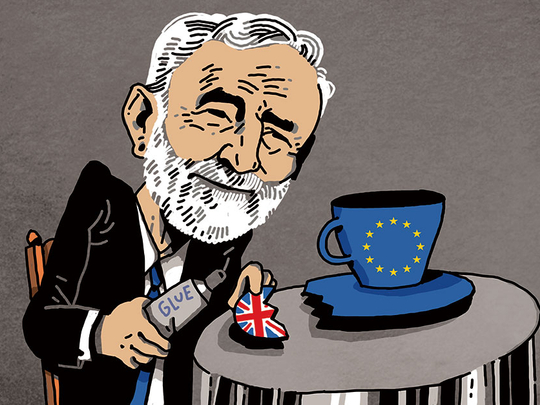
The idea that the British people are on the brink of “liberation” from the European Union is starting to look very odd indeed. The evidence increasingly suggests that by the middle of the next decade, we may very well still be fully bound by most of the key terms and conditions of EU membership.
Yet while we may be obliged to accept EU laws and regulations affecting the single market and the customs union and still have to pay into the EU budget, the British people may notice one difference: we will have neither voice nor vote in determining European laws and regulations. We will be law-takers, not lawmakers.
There is likely to be another serious inconvenience to doctrinaire Eurosceptics: the UK may not be able to actually implement any of the promised “amazing trade deals” with the rest of the world until the mid-2020s. In the meantime, it should be noted, Commonwealth countries such as Canada, Australia and New Zealand are indeed already busy finalising or negotiating some amazing new trade deals. But these are with the EU, not the UK.
Legally, we are on course to leave the EU next March; that’s when the period allowed under Article 50 for negotiating the principles of a new relationship with the EU expires. We then have a further short period, until the end of 2020, to finalise a new, full-scale trade and cooperation treaty with Europe.
The trouble is that — outside the Theresa May cabinet — no one any longer really believes in this sort of timetable. It is conceivable, but improbable, that the Article 50 deadline could be extended by a very short period, but there will be serious legal problems to face. What is more likely is that the subsequent transition (or implementation period), during which the substance of a new treaty would have to be agreed, could be extended. UK customs experts have joined British business and industrial leaders in saying significantly more time will be needed before the UK would be anything like prepared for life outside the customs union and single market. Hence discussion of further proposed deadlines, ranging from the end of 2022 to around 2025.
Two major political events in the UK could upend this kind of extended period of grace. The first is the possible collapse of the May government. This may not transpire, but no one can ignore the ever louder drumbeat from hardline Brexiteers that an October general election cannot be ruled out.
What is beyond question is that it is a constitutional obligation for the next general election to be held no later than early summer 2022. Even at that stage, the UK may still be in a state of limbo in relation to the EU — bound by obligations, but deprived of democratic rights.
Different approach
In the event of an election this autumn, the focus would increasingly shift from how May can survive and complete the Brexit process to how a Jeremy Corbyn-led government would handle the Brexit process if elected. Indeed, in the event of an October election, he would have to make it clear how he would handle future talks with Brussels.
He may state unambiguously that he wishes to reopen negotiations with Michel Barnier, the European Council, and indeed the European parliament, at the earliest possible date. He could signal that a Labour government would approach these talks in a very different manner — and say that Labour wants to commit to the standards set by the EU in areas such as workers’ rights and social standards. Corbyn might also express readiness to back further strengthening of EU-wide environmental standards and democratic rights. In particular, as prime minister, there’s a good chance that Corbyn would support some of the reforms now promised by the European commission — notably the planned new European Labour Authority. More specifically, the mooted reforms of the posted workers directive — to close loopholes in free movement exploited by rogue employers to undermine local wages and labour conditions — would be attractive to Corbyn. As a Labour prime minister who pledged to end austerity and gross inequality, his government will have every interest in cooperating as closely as possible in a Europe-wide strategy for faster growth and job generation.
For its part, the EU would have every interest in giving an incoming Labour government time to talk through these issues with Brussels — and perhaps an opportunity to put the results to parliament or the people for approval through a referendum.
It is worth remembering that, before the 1975 EU referendum, Harold Wilson opposed the terms of the agreement which had been negotiated by Edward Heath’s Tory government. The resulting so-called “renegotiated agreement” was then endorsed in that referendum. A Corbyn “reform and remain” agreement would give voters a constructive alternative to being in the EU only for obligations, and out in terms of democracy and lawmaking rights.
— Guardian News & Media Ltd
John Palmer is a former European editor of the Guardian and former political director of the European Policy Centre.










